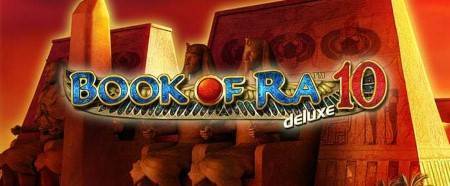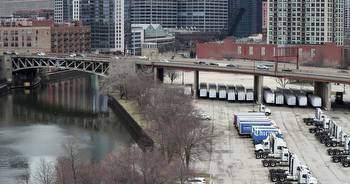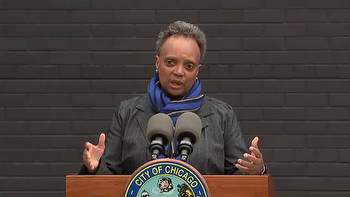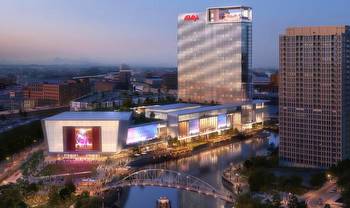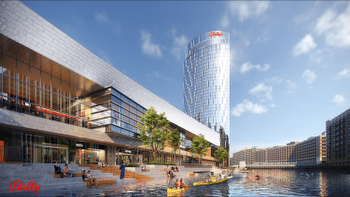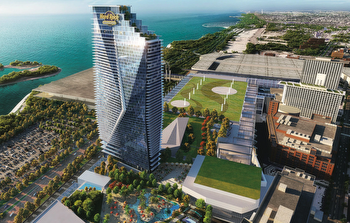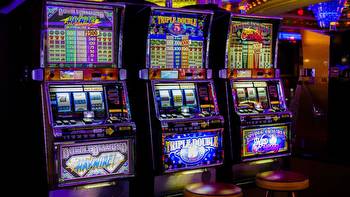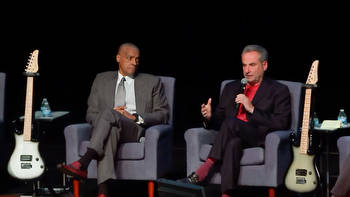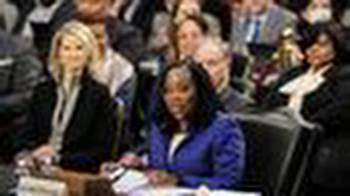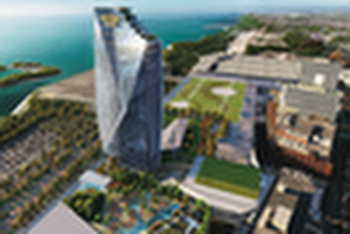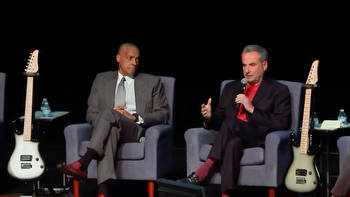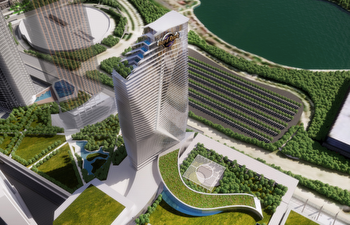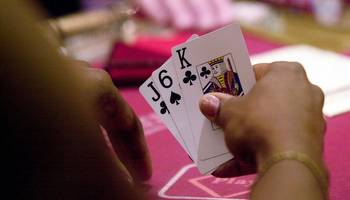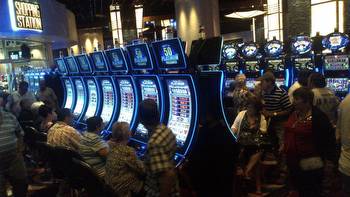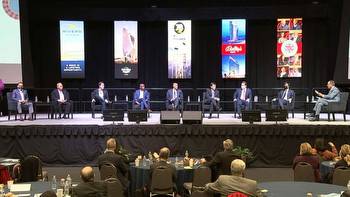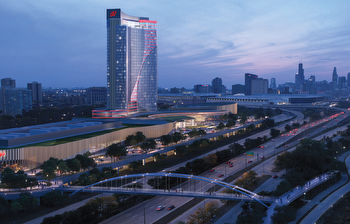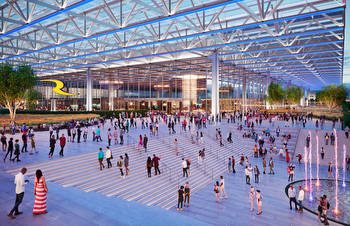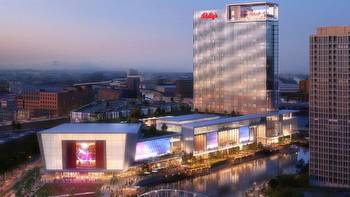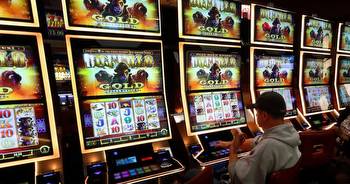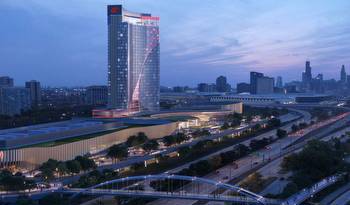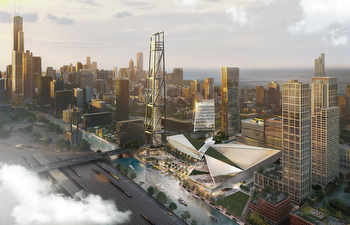Chicago casino bidders get grilled in first public hearing
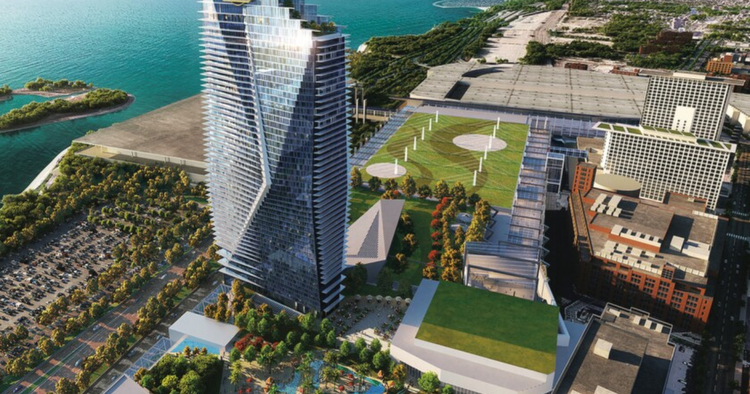
The first of three high-stakes meetings for the finalists hoping to win Chicago’s sole casino license kicked off Tuesday as Hard Rock Chicago tried to convince a skeptical audience its proposal wasn’t tethered to a larger development in need of $6.5 billion in state assistance.
The meetings represent an opportunity for Hard Rock, Bally’s and Rivers 78 to try to win over nearby residents on the idea their casinos won’t disrupt daily life while providing hundreds of millions in tax revenue to shore up the city’s underfunded police and fire pensions.
Tuesday night’s meeting, held inside a packed auditorium at the Harold Washington Library, showed it could be a tough sell.
Expecting vocal opposition from some in the room, Martina Hone, the city’s chief engagement officer, told the crowd there may be “many strongly held and sincere views” shared during the presentation, but “screaming and hollering” is not going to be the only factor for the city when picking a winner.
Hard Rock was the first in the hot seat, presenting its plans for a soaring $1.74 billion entertainment complex built over train tracks west of Soldier Field featuring a 3,000 slot machine and 1,166 table games, a 3,500 seat Hard Rock Live entertainment venue, 500-room hotel, a spa, rooftop space, “several” restaurants and six bars.
The project could bring in $185 million in tax revenue six years after it opens to the city, according to a city analysis.
Hard Rock's team—a joint venture between the majority owners, the Seminole Tribe of Florida and a collection of investors that includes Bob Dunn’s Landmark Development and Black-owned Loop Capital—looked to convince the audience, and city officials sitting in the front row, that it can move forward with the casino even if the $6.5 billion in state assistance needed for the larger One Central development doesn’t materialize.
Marj Halperin, a South Loop resident, kicked off the question-and-answer portion of the meeting saying, “you put together a comprehensive proposal, but One Central is the millstone around your neck. The community doesn't want it.”
Hard Rock Chicago’s financial future is in no way “tied” to the larger One Central, Dunn told the audience.
“(Hard Rock) is separately financed, separately designed, will be separately built, owned, etc., from any eventual development of One Central,” he said.
“We have nothing to do with the massive project for One Central. . . .That's separate from us,” said Hard Rock CEO Jim Allen, before making a commitment the casino development will not “take one penny of . . . subsidies on this casino.”
But, under later questioning, One Central developer Dunn conceded the team would work with the city to determine if Hard Rock would pursue a separate planned development—a city zoning designation for large developments that guides the size and scope of buildings—for the casino or if it would be part of a larger planned development to include One Central.
The company also touted itself as the most diverse development team of the three finalists.
Jim Reynolds, the Black CEO of Loop Capital, told the crowd only their proposal includes minority involvement in the highest levels of the business partnership. The other teams will include minority investors as limited partners where they will “have no influence” in the decision making of the casino.
The company was also pressed by influential Illinois Restaurant Association president Sam Toia to make a commitment to include locally owned restaurants in the project.
Allen said there would “100 percent” be restaurants owned by the company, like a Hard Rock Cafe, but he will “certainly look at what is available” and local restaurants could be included.
Hard Rock says it can take bets at a temporary casino by the second quarter of 2023 while its permanent location would open in the third quarter of 2025, although a city analysis deemed that timeline “aggressive.”
Allen said the company “accepts” that their initially proposed temporary casino at a smaller building in the McCormick Place complex would not work, so instead the company has looked at other sites, including a “promising” conversation with an unnamed hotel.
Ald. Pat Dowell, 3rd, who has not voiced support or opposition for the casino, did not attend the event. A representative from her office did not speak during the presentation.
Next up is Bally’s, which hopes to build a casino at the Tribune Publishing site along the Chicago River between Chicago and Grand Avenues. Led by the River North Neighbors Association, there is expected to be vocal opposition to the proposal.
Ald. Brendan Reilly, whose 42nd ward sits across the river from the site, said Monday his constituents “are not enthused.”
Walter Burnett, 27th, whose ward includes the site, said he’s “open minded” about the proposal.
On Thursday, local casino magnate Neil Bluhm’s joint effort with Related Midwest at The 78 mega-development will present plans before an audience sure to include local Ald. Byron Sigcho Lopez, 25th, who has come out against the project.
After Mayor Lori Lightfoot selects a finalist, the winner will be evaluated by a new special City Council committee created last month. If approved, the proposal needs full City Council signoff before being sent to the Illinois Gaming Board for its own review process.







